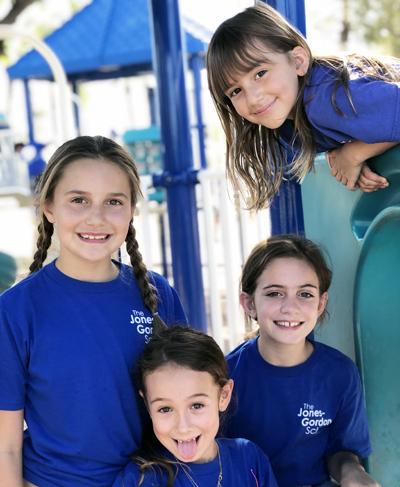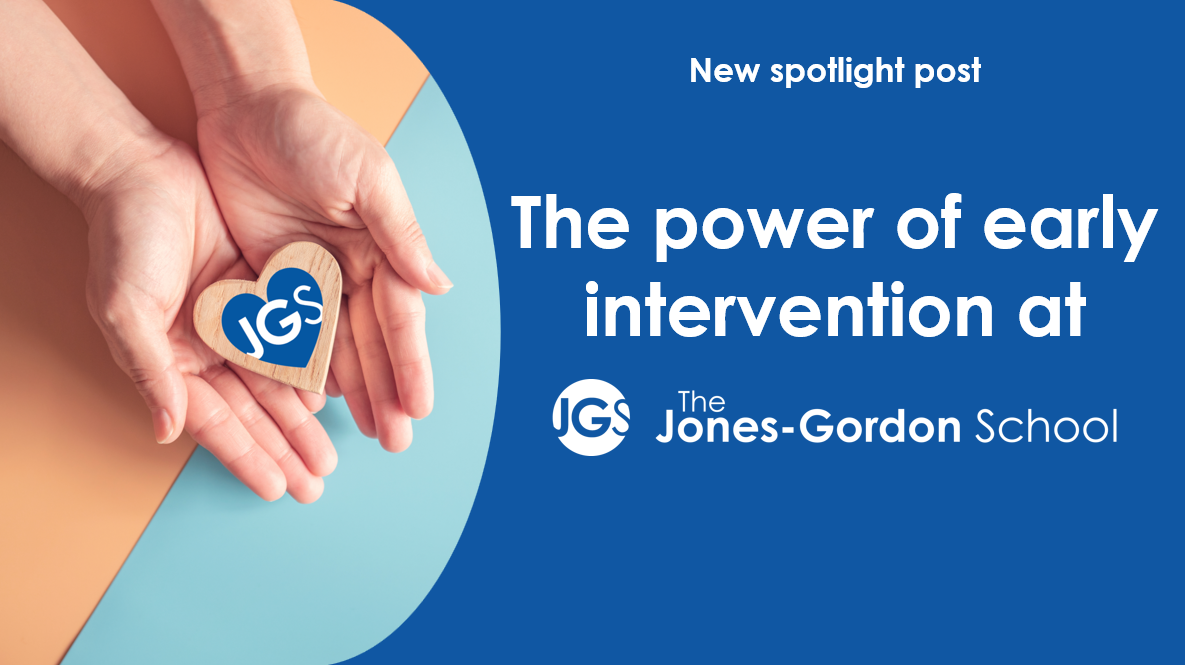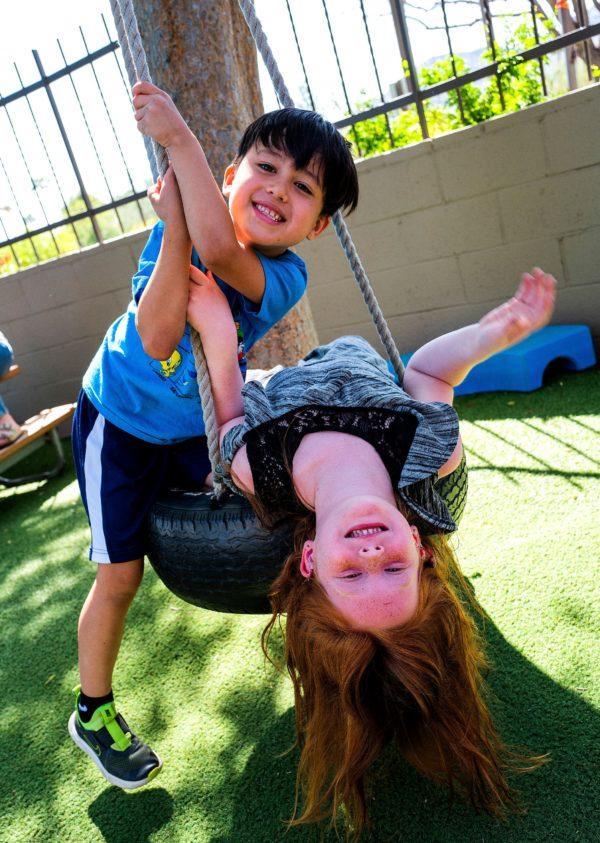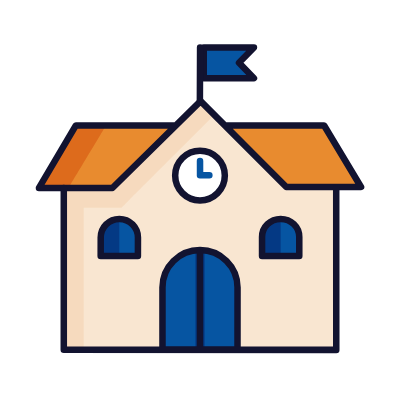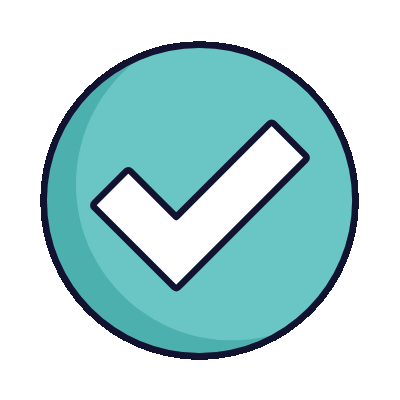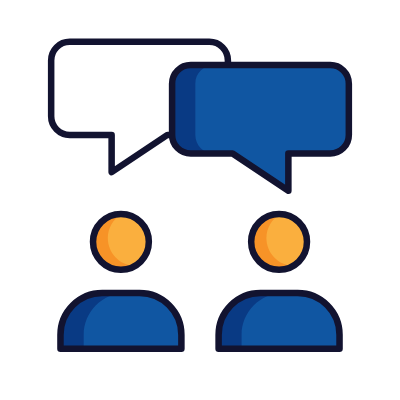Arizona's private dyslexia school
The Jones-Gordon School
Paradise Valley, Arizona
The Jones-Gordon Lower School
Belong. Explore. Grow.
At The Jones-Gordon School, our Lower School (Grades 1–5) is built on the belief that early education should be both rigorous and deeply rewarding. We’ve created a place where curiosity is celebrated, mistakes are part of the journey, and learning feels like an adventure.
Students feel seen, supported, and excited to come to school each day—and so do our teachers. In this warm, spirited environment, meaningful learning and genuine happiness go hand in hand, empowering children to grow into confident, capable learners who love school.
The JGS Lower School offers…
- A structured literacy foundation grounded in the Science of Reading
- Differentiated math instruction with flexible, skill-based groupings
- Daily FLEX time for intervention or enrichment
- Engaging specials & regular field trips
- A warm, inclusive community that fosters emotional intelligence and leadership
- Frequent movement breaks to reset, refocus, and recharge
- Hands-on, experiential learning that sparks creativity, critical thinking, and curiosity
The JGS Lower School is not…
- A place where students are defined by their challenges instead of their potential
- A one-size-fits-all academic program
- A school that waits for students to fail before offering support
- A place where kids are rushed, overlooked, or underchallenged
- A rigid or standardized curriculum
- A classroom where creativity is stifled or curiosity is ignored
- A high-pressure environment that prioritizes performance over growth
Lower School Technology
Device-Free Zone
The Lower School at JGS is a cell phone and smartwatch-free zone during the school day. Personal devices are not allowed on campus in order to support learning, face-to-face connection, and the development of essential social and executive functioning skills.
Chromebooks & iPads
Each JGS Lower School student is assigned a personal laptop or iPad for academic use during the school day. Students use Google Workspace and other educational tools to enhance learning, build digital literacy, and support their academic growth. Technology is purposefully integrated—and always remains just one thoughtful part of the overall learning experience.
Speech & Occupational Therapy
Speech and occupational therapy are delivered through a combination of embedded school-based support, including individual, small group, and in-class sessions tailored to each student’s needs.
Early Intervention & the JGS FLEX Program
At JGS, we believe in identifying challenges early, before they become barriers to learning. That’s why our structured support begins in 1st grade, when students are developing foundational skills in speech and language, phonological and phonemic awareness, and early phonics.
By 2nd grade, students who need additional support begin Tier 3 intervention through the Wilson Reading System®, giving them the tools they need for more advanced literacy instruction.
In Grades 3–5, targeted reading intervention continues during daily FLEX time, using the Wilson Reading System® to strengthen decoding, encoding, fluency, and comprehension skills.
For students who don’t require intensive (Tier 3) reading intervention, FLEX provides enrichment and targeted support in reading, writing, STEM, and executive function—so every learner can grow, explore, and thrive at their own pace.
Core Academic Classes
English Language Arts: A Science of Reading Approach
Our Lower School literacy instruction is rooted in the Science of Reading and built upon evidence-based practices that develop reading fluency, comprehension, morphology, vocabulary, and writing skills in a systematic, intentional way. Certified and experienced educators implement structured literacy approaches—such as Wilson®, Lindamood-Bell®, UFLI®, and Heggerty®—to ensure each student builds a strong foundation in language.
For students who require more intensive support, targeted intervention through the Wilson Reading System® (WRS) or JustWords® is integrated into the school day during dedicated FLEX classroom time.
Math & Problem Solving
We believe math should be meaningful, not just memorized. Our Lower School students engage in conceptual, inquiry-based math, learning to understand the “why” behind the numbers. Daily math talks help students develop confidence and communication skills as they explain their thinking and explore multiple strategies. With opportunities for extension or support, students progress at a pace that fits their development and readiness.
Science & Social Studies
The JGS hands-on science program follows the Next Generation Science Standards and engages students in grade-level investigations that build scientific thinking and real-world understanding.
In social studies, students explore activity-rich, grade-level content that reinforces and extends ELA skills like writing and reading comprehension, while introducing robust, themed vocabulary.
Specials & Enrichment
Throughout the week, Lower School students engage in diverse enrichment classes that support the development of creativity, confidence, and personal expression. Offerings include:
- Music
- Visual Arts
- PE & Movement
- Leadership & Emotional Intelligence (EQ)
Regular field trips and schoolwide events provide opportunities for connection, discovery, and shared experiences.
Play with Purpose
In the Lower School, play isn’t just allowed, it’s encouraged. We believe joy is essential to learning, and our classrooms hum with creativity, laughter, and experiential learning. Whether engineering with blocks, dramatizing a story, or designing a group project, students learn to collaborate, imagine, and grow through purposeful play.
Executive Function & Emotional Intelligence
At JGS, even our youngest students begin building the skills they need to succeed in school and in life. Through daily Responsive Classroom® Morning Meetings, embedded executive function lessons, and our schoolwide RULER® program for emotional intelligence, students learn to:
- Stay organized and manage their time
- Handle big emotions in healthy ways
- Set goals and reflect on their progress
- Work well with others and solve problems together
- They also begin to understand learning differences
- like dyslexia, dysgraphia, dyscalculia, and ADHD
- How to speak up for themselves and know their strengths
- How their brains work and how they learn best
At JGS, we don’t just teach academics—we teach kids how to learn, how to grow, and how to feel good about who they are.

